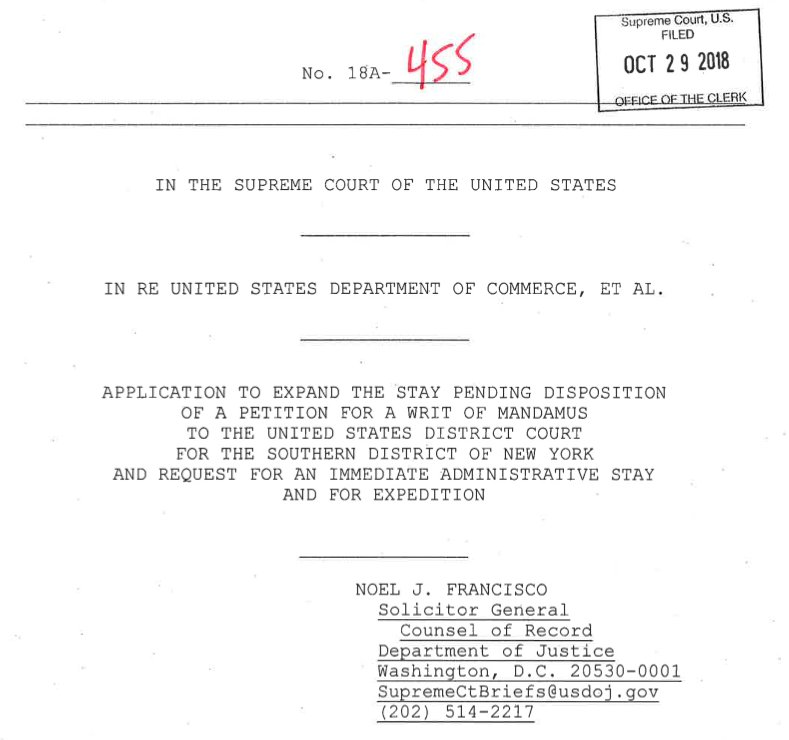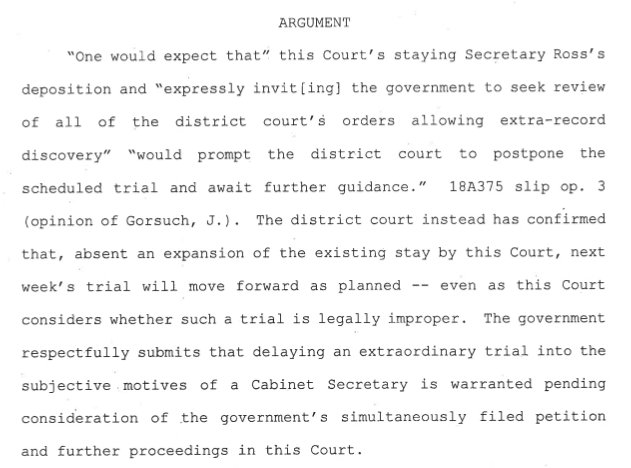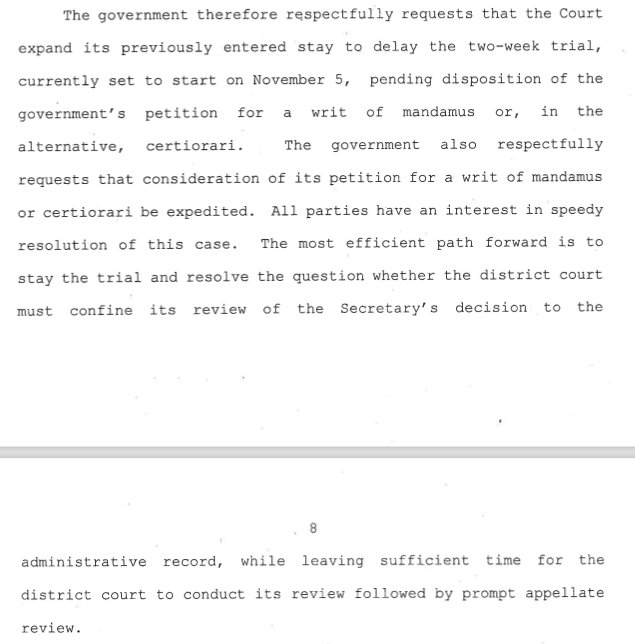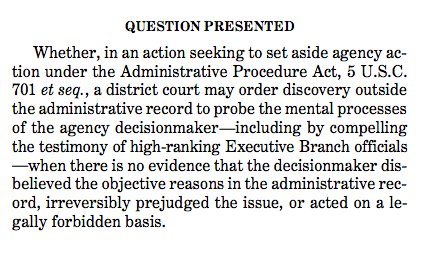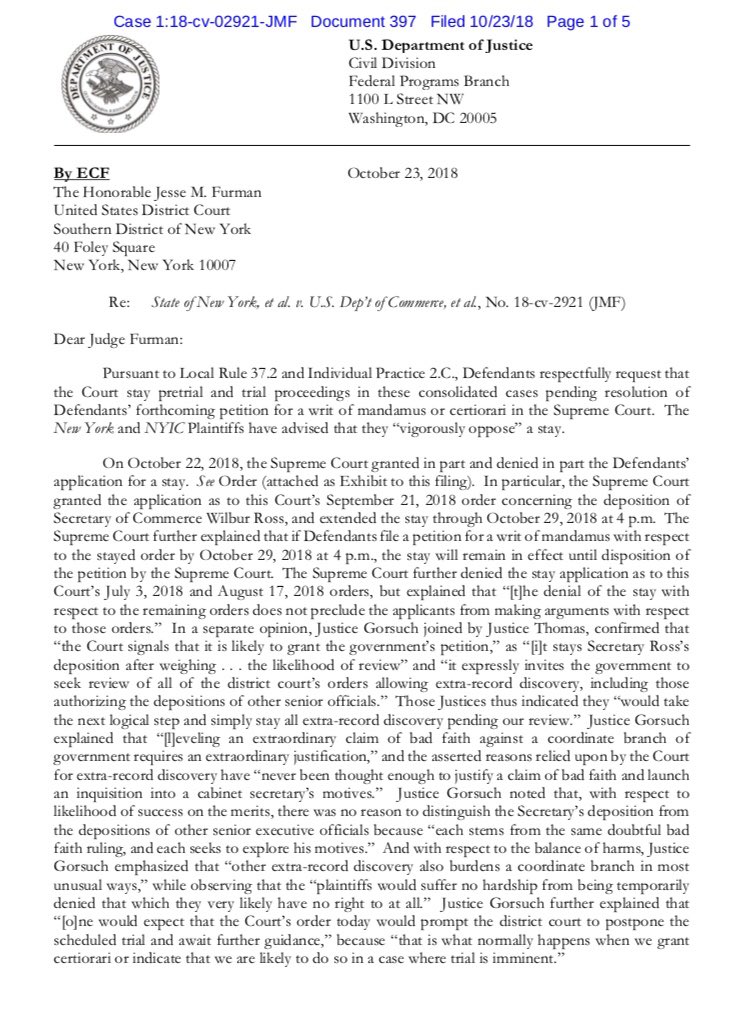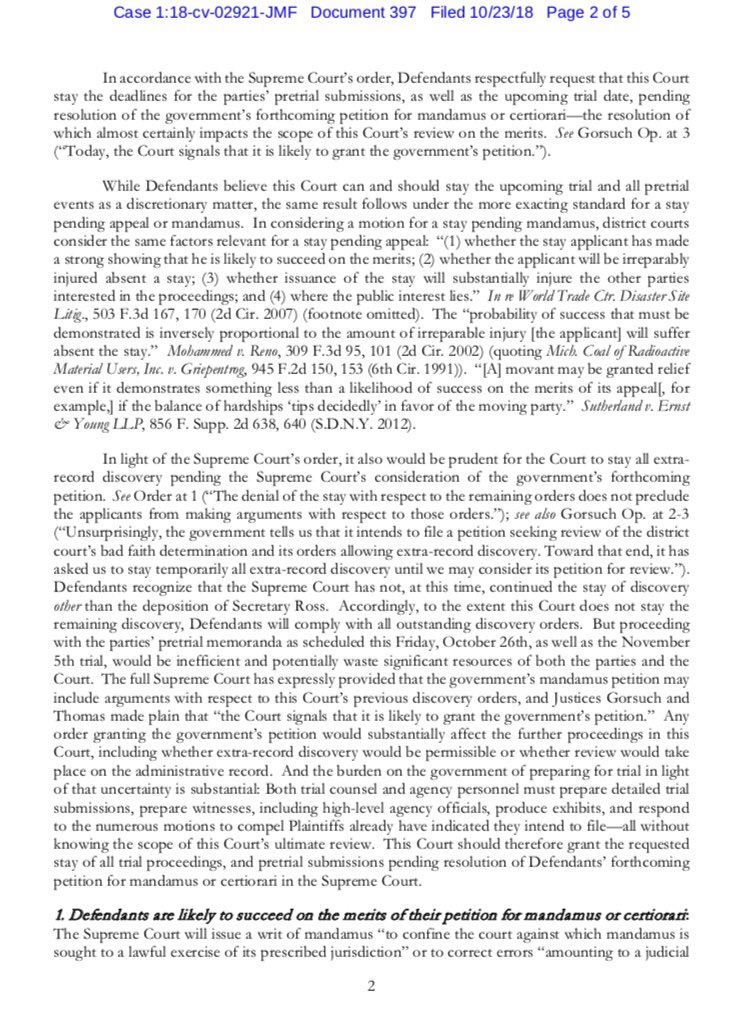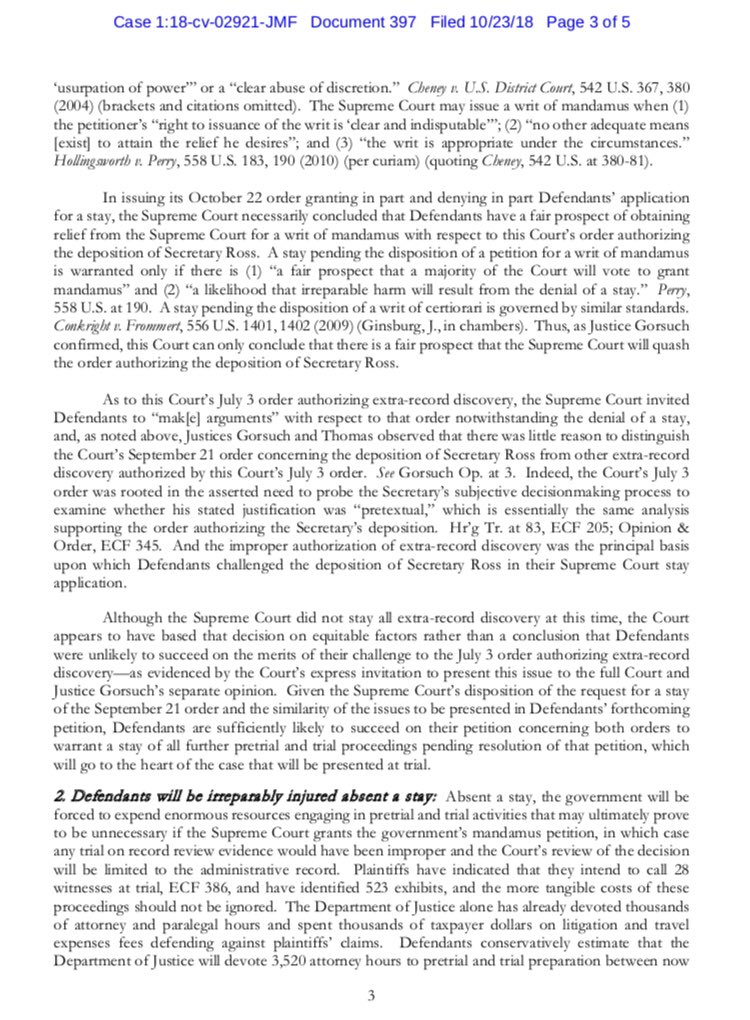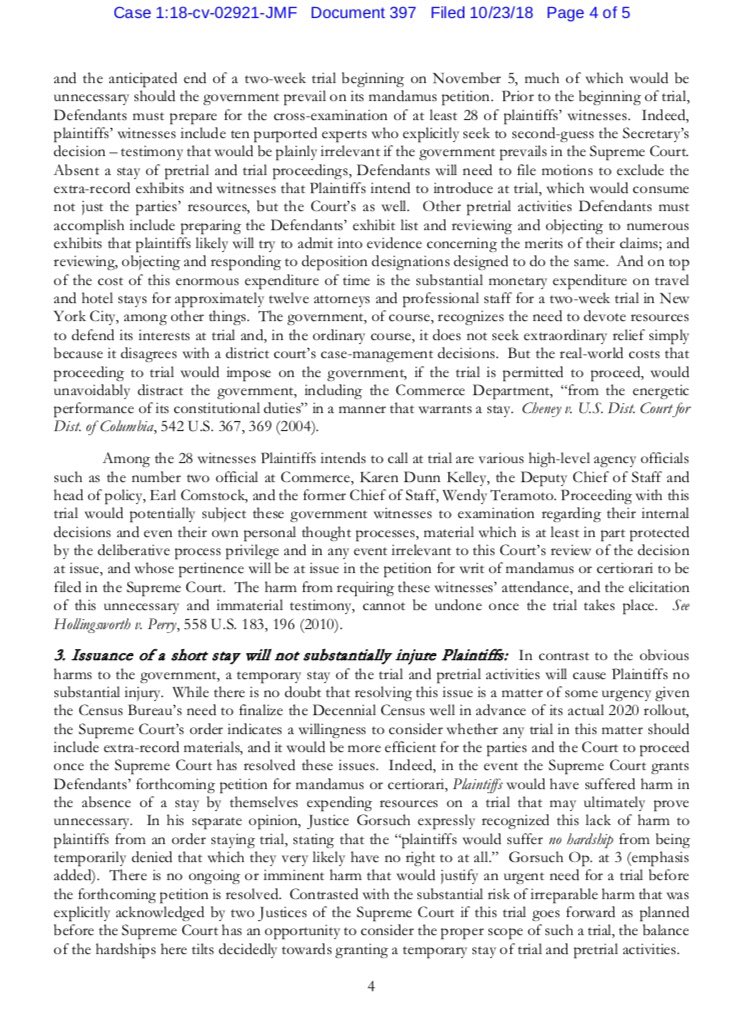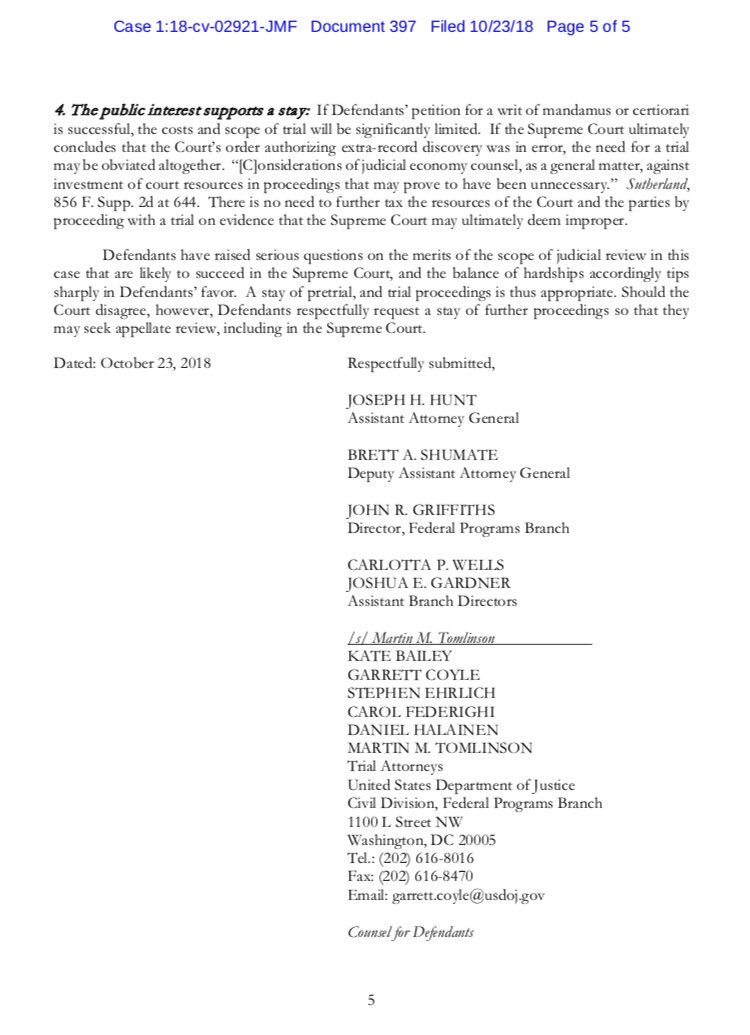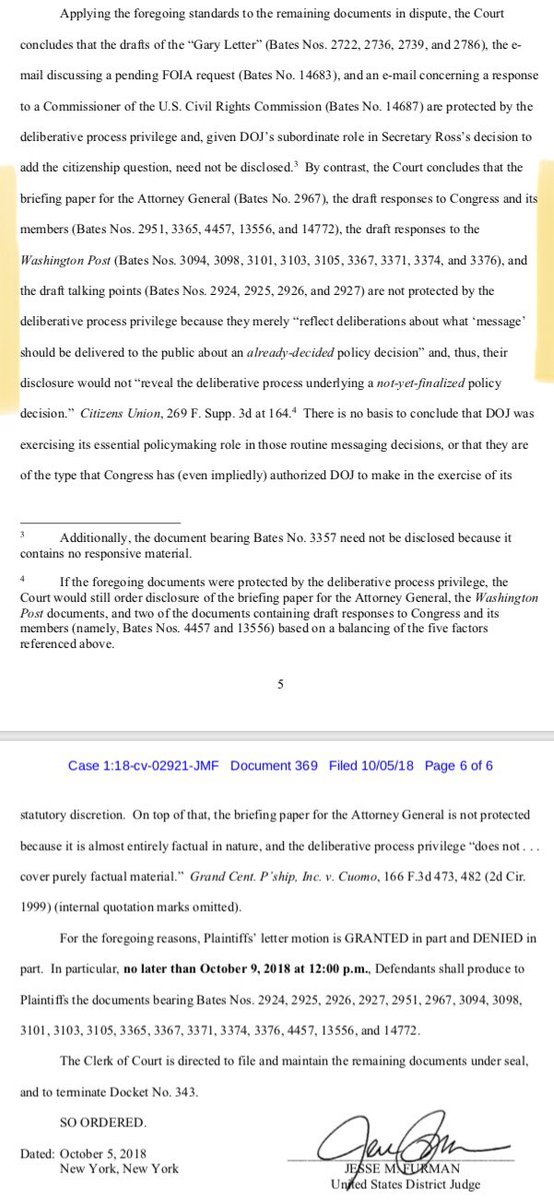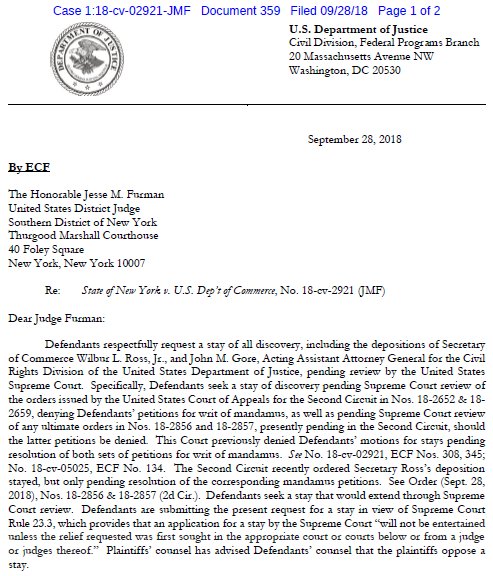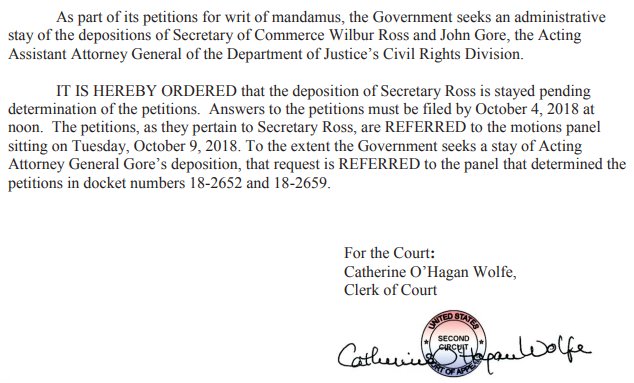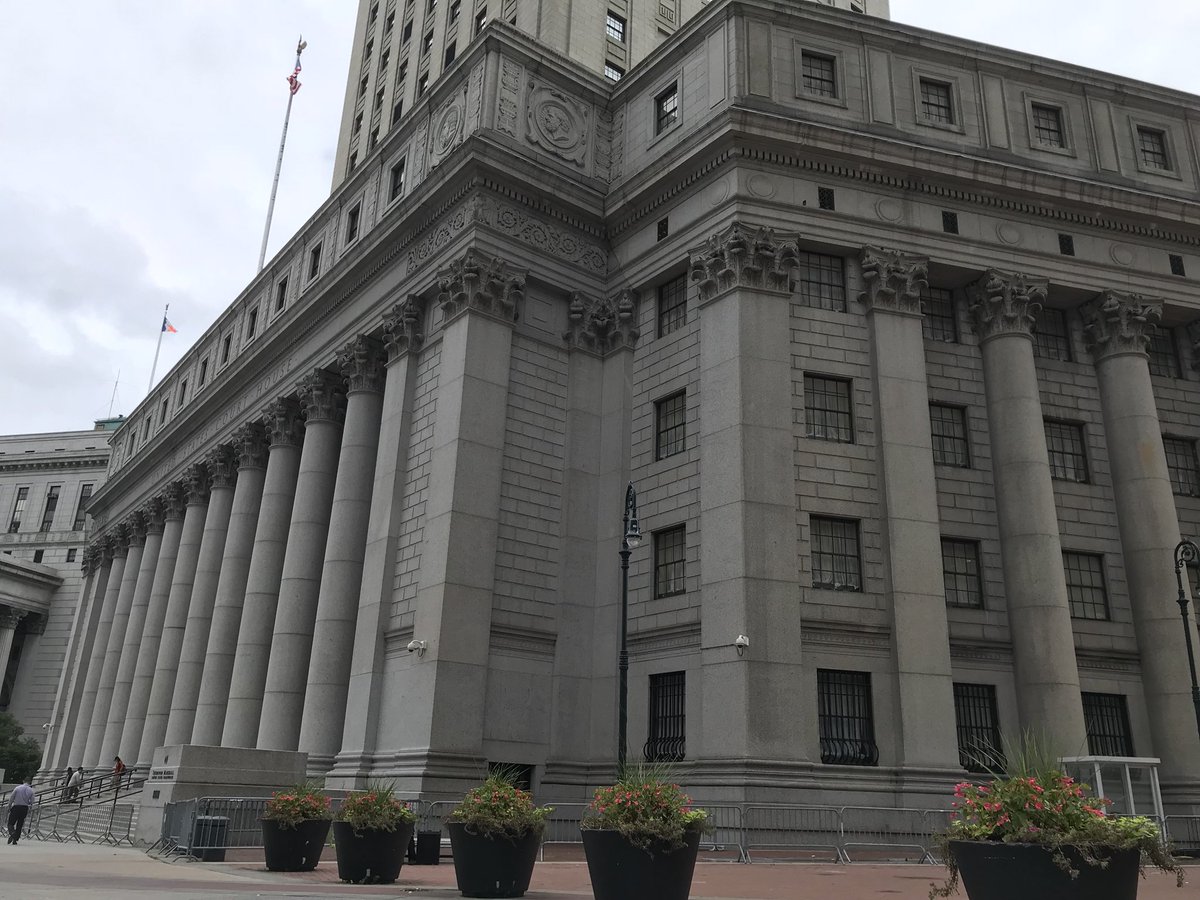The #2020Census trial is about to begin a bit early. The attorneys are introducing themselves, and U.S. District Judge Jesse Furman has taken the bench.
As the SCOTUS denied a last-minute stay, trial ahead. courthousenews.com/taking-up-5-ca…
Furman indicated that he will watch the video of the depositions of John Gore and Earl Comstock, which means that the footage will become public.
Breakdown by @hansilowang
The judge makes clear that he will docket the deposition designations along with the summaries.
The affidavits of the direct testimony will also be docketed.
She also wrote a book called "The Hard Count."
"We have an election tomorrow. I'm a political scientist."
"The purpose of my testimony is to evaluate the likely impact of a citizenship question on Hispanic and non-citizen households," she says.
Also evaluating Ross...
* will depress counts.
* was executed in a way against census guidelines.
Now explaining how census works. More on those conclusions later.
She says there historically has been an undercount of minority populations.
"That is the effort that is being asked of the respondent to fill it out," she says, describing such factors as "length," "complexity," "intrusiveness," and "sensitivity of what is being asked."
"Privacy is like 'don't ask'; confidentiality is like 'don't tell,'" she says.
She adds there is "empirical evidence" that both non-citizens and Hispanics will be affected.
Hillygus: What’s so significant about this is post-the addition of the citizenship question, this offers one of the only attempts by the Census Bureau to evaluate the impact of the citizenship question.
Hispanics were 9x more likely from non-Hispanic whites to break off from the survey at the point of the citizenship question, Hillygus says.
Hillygus replies this would lead to "lower-quality data" for those households.
She emphasizes that this is Census Bureau research itself predicting depressed counts.
Hillygus are testifying about the Census Bureau's outreach campaign and NRFUO (non-response follow-up operations).
She says that the "fragmented media environment" makes it more difficult today to get a message out.
"NRFUO did not eliminate undercount in the past. This is an empirical pattern that we have seen in the past."
"The potential for this to be politicized" complicates NRFUO even futher, she adds.
“For noncitizen households and hispanics, proxy households are probably underestimating respondent size," Hillygus testifies.
Earlier, she defined imputation procedures as "a guess to fill in the numbers," and that these will undercount Hispanic and non-citizen households.
Hillygus responds that they are not.
Non-Response Follow-Up operations are known as NRFU, not NRFUO.
* Fewer people self-responding.
* Increase in NRFU
* Increase in proxy respondents
* Increase in imputations
All of which she says reduces accuracy.
"I would argue that a citizenship question has an impact on the integrity of the data," Hillygus says. "Data breaches happen."
Q: Does Secretary Ross talk about disclosure avoidance in his memo?
A: No.
One method of avoiding disclosure is infusing noise.
Asked if Ross mentions noise infusion, Hillygus responds: No.
Judge Furman takes the bench.
"You may be seated," he say.
We're back with more direct testimony from Hillygus. Furman addresses media requests for the deposition videos. He says they should be available to the press and public.
(I will publish the video and edits once they become public.)
Now back to the testimony.
Hillygus' response: "WTH."
Asking if that communicated "What the hell," Hillygus said it communicated: "My shock, yes."
She confirms that she did say that.
Acknowledging she can't know, she adds: "I don't know if that's still feasible to conduct that before the 2020."
Q: Could the Census Bureau have done additional question on the sensitivity of the question to Hispanics.
A: Not only could have. I believe they were obligated to.
She acknowledges filing errata to her report giving incorrect statistics about what percentage were non-citizens.
Thanks for following and here's my recap of the opening day of #2020Census trial on @CourthouseNews here. courthousenews.com/scholar-warns-…



